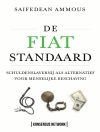The politics of business have become the business of politics.
Across the world the lesson is clear: just as too much governmental
interference leads to dysfunctional economies, left to its own
devices the market is incapable of adequate self-regulation.
The corporate malfeasance crisis in the United States has
transformed global perceptions about the efficacy of regulatory
structures in combating corrupt practices in private and public
sectors. The design of effective corporate governance structures
depends not just on internal factors but also on the
inter-relationship between various actors that constitute wider
governance: politicians, lobbyists, corporations and
regulators.
A Corrupted State: Wall Street on Trial breaks new ground by
deconstructing the systemic flaws inherent in the model itself. It
reveals that the ‘rotten apple’ theory, positing the problems in
corporate America as merely the result of deviancy by an individual
or a single firm, is an intellectual deceit not supported by the
facts.
Tabela de Conteúdo
Foreword vii
Acknowledgements xi
Introduction: the corruption cycle 1
1 Assessing guilt: the Wall Street shakedown 37
2 Power failure: the fall of Enron 71
3 An appalling vista: the rogue of Rhode Island 115
4 Lynching Merrill 141
5 Enforcing the enforcers: the politics of business 175
6 Corporate politics: the buying of power 219
7 From Chicago to Washington via New York and Baghdad 247
Index 285
Sobre o autor
Dr Justin O’Brien is Senior Fellow at the Institute of
Governance, Public Policy and Social Research, Queen’s University,
Belfast. A specialist in corporate governance and political
corruption, he is the author of The Modern Prince, the acclaimed
biography of Charles Haughey. Before transferring to academia, Dr
O’Brien was an investigative current affairs journalist with the
BBC, RTE and UTV, where his last position was Editor, Current
Affairs. Married with two children, he lives in Belfast.












